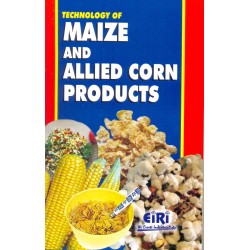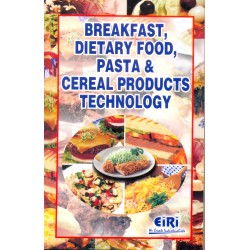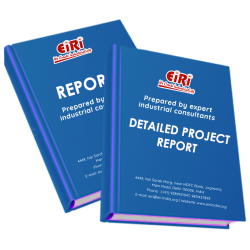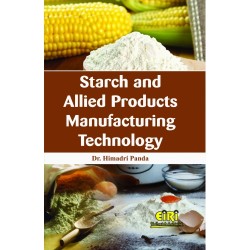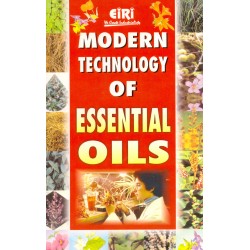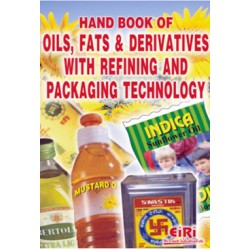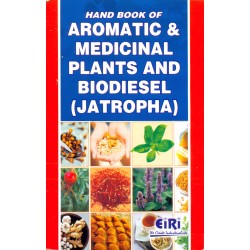Technology of Starch Manufacture (Applications, Properties and Compositions with Project Profiles)

- More than 40 years of experience
- Managed by expert industrial consultants
- ISO 9001-2015 Certified
- Registered under MSME, UAM No: DL01E0012000
- 24/5 Research Support
Get your quesries resolved from an industry expert. Ask your queries before report or book purchase. - Custom Research Service
Speak to the our consultant to design an exclusive study to serve your research needs. - Quality Assurance
All reports are prepared by highly qualified consultants & verified by a panel of experts. - Information Security
Your personal & confidential information is safe & secure.
- Material
- Preparation of Flour
- Proximate Composition
- Process Standardization
- Table. Nutritional Composition of Amaranth Cultivars
- Pre-standardized methods of extraction of amaranth starch and their yield and protein percentage
- Alkali Standardization for the extraction of starch from Amaranathus hypochondricus Anapurna
- Flour Particle Size Standardization for the Extraction of Starch from Amaranthus hypochondricus Anapurna
- Screen/Filter Mesh Size Standaridization for the Extraction of Starch from Amaranthus hypochondricus Anapurna
- Process Standaridization for the Extraction of Starch from Amaranthus hypochondricus Anapurna, Amaranthus hypochondricus Durga and Amaranthus paniculates
- Materials and Methods
- Materials
- Methods
- Scanning Electron Microscopy
- X-ray diffraction
- Proximate analysis
- Fractionation of starch
- Determination of amylose
- Intrinsic viscosity
- SEM for sago starches (top picture sago 6 bottom picture sago 3)
- Light scattering
- Differential scanning calorimetry
- Gel strengths
- Viscograms
- Results and discussion
- Scanning electron microscopy
- X-ray diffraction
- Proximate composition of starches
- Proximate composition
- Amylose content in starch samples
- Intrinsic viscosity and Mw for amylose and amylopectin
- Determination of amylose
- Intrinsic viscosity and molecular weight
- Gelatinisation temperature and enthalpy for starchs amples
- Production (extraction and Isolation)
- Physiochemical properties
- Chemical modification in sago starch
- Effect of galactomannans on thermal and reological properties of sago starch
- Effect of cellulose addition on hydrolysis of sago starch
- Gelatinisation of sago starch with sugar and salts
- Effect of temperature and solute concentration on viscosity
- Effect of freezing and thawing techniques
- Effect of pH on phosphorylation of sago starch
- Effect of retrogradation on enzyme susceptibily of sago starch
- Effect of cross linking reagents and hydroxypropylation levels
- Pharmaceutical applications
- Tablet formulation
- Starch based hydrogel as artificial skin
- Antibacterial activity
- As packaging material
- Culture medium
- Production of ethanol
- Glucose production
- Cyclodextrin production
- Production of UV curable coatings
- Ingredients
- Grinding
- Peart making
- Grading
- Steaming
- Cooling
- Separating
- Drying
- Packaging
- Materials and Methods
- Preparation of carboxymethyl starch (CMS)
- Statistical analysis
- Sorghum carboxymethyl starch properties
- Results and Discussion
- Proximate composition of sorghum grains
- Chemical composition of starch
- Standardization of carboxymethyl starch production from native sorghum starch
- Proximate Composition of hybrid sorghum CSH 9
- Physio chemical composition of sorghum CSH 9 starch
- Effect of reaction time and monochloroacetic acid concentration on DS of CMS
- Properties of sorghum CMS starch
- Swelling and solubility behaviour of CMS from sorghum
- Chemical Composition of CMS starch from sorghum
- Effect of temperature on flow behaviour of 10% sorghum starch solution at different shear rates
- Rheological properties of sorghum CMS
- Effect of temperature on flow behaviour of 10% sorghum CMS starch solution at different shear rates.
- Tree crops
- Cereals
- Herbs/shrubs
- Pulses
- Tropical root corps
- Other minor sources
- Arrowroot
- Pacchyrrhizus
- Arracacha
- Chinese water chestnut
- East Indian arrowroot
- Glant taro
- Coleus
- Lotus root
- Oca
- Queensland arrowroot
- Shoti
- Swamp taro
- Breadfruit
- sago
- Mango
- Amaranthus
- Tacca
- Plantain
- Okenia
- Quinoa
- Enset
- Sorghum
- Tef
- Bamboo
- Black pepper
- Buffalo gourd
- Chick pea, cow pea and horse gram
- Winged bean
- Baby lima bean
- Velvet bean
- Materials/Instruments Used
- Sample Collection
- Sindhoori Mango
- Mango Seed along with the Kernel
- Process of Starch Isolation
- Physicochemical Properties Analysis of Starch Ash Content (%)
- pH
- Amylose Content (%)
- Confirmation Test of Starch
- Effect of Solid Solvent Ratio on Yield of Starch
- Determination of Optimum Solid Solvent Ratio
- Percentage Yield of Different Variety of Mango
- Percentage Yield of Starch
- Material Balance
- Physicochemical Properties Starch
- Physicochemical properties of Starch
- Purity Test
- Material Balance
- Comparison of Purity of Starch
- Adhesive Produced
- Adhesive Produced
- Urethane bonds
- Selected aspects of starch modification
- Thermoplastic starch
- Thermoplastic starch with nanoparticulate fillers
- Oligoether with two isocyanste groups
- Toluene 2-4 diisocyanate (TDI)
- 1.4 butanediol polyadipate n=2000 (PBA 2000)
- 2.2 bis(hydroxymethyl) propionic acid
- Diphenylmethane 4,4 disocyanate (MDI)
- Hexamethylene disocyanate (HDI)
- Materials and Methods
- Materials
- Starch Modification
- Biopolymer production
- Time course of biopolymer production
- Characterization of the biopolymer
- Gel filtration chromatography (GFC)
- Fourier transform infrared (FT-IR)
- Film Casting
- Tensile Test
- Water Absorbance Test
- Manufacture
- Sources
- Extraction
- Processing
- Structure
- Starch molecule
- Starch granule
- Hydrogen bonding
- Modifications
- Cross Linking
- Stabilisation
- Conversions
- Acid hydrolysis
- Oxidation
- Dextrinisation
- Enzyme hydrolysis
- Lipophilic substitution
- Pregelatinisation
- Thermal treatment
- Technical data
- Structure function relationship
- Native starches
- Process tolerant starches
- Nutrition
- Fat mimetics
- Resistant starch
- Uses and applications
- Starch selection
- Ingredient factors
- Acid
- Sugars
- Fats and oils
- Process factors
- Shelf stability
- Effects of food processing
- End use
- Applications
- Baked goods
- Batters and breadings
- Beverage emulsions and flavour encapsulation
- Confectionery
- Dairy products
- Fruit preparations
- Gravies, soups & sauces
- Mayonnaise and salad dressings
- Meat products
- Savoury snacks
- Types and structure of resistant starch
- Concept and classification of resistant starch
- Resistant starch 1
- Resistant starch-ii
- Resistant starch iii
- Resistant starch iv
- Significants of resistant starch
- Occurrence of resistant starch in food
- Schematic of HFCS production from corn starch
- Production and Ues of HFCS
- Relative sweetness of selected sugar solutions (5%) and other sweeteners
- Solubility of selected sugars at 50oC,Solubility measured as grams of sugar dissolved in 100 ml water
- Public Health Concerns
- Role in metabolic syndromes obesity,diabetes, and other cardiovascular diseases
- Mercury contamination
- Toxicity to honey bees
- Food items that contain HFCS
- Starch Structures Relevant to Foods
- Gelatinization and Pasting
- Changes During Cooking
- Why Starch is Modified
- Derivatizations
- Crosslinking
- Crosslinking reagents
- Monosubstitutions (stabilizations)
- Acetylation
- Hydroxypropylation
- Monophosphorylation
- Octenylsuccinylation
- Conversion
- Fluidity (thin-boiling) Starches
- Dextrins
- Oxidation
- Physicial Modifications
- Altered Flow Properties
- Pregelatinization
- Drum drying
- Extrusion
- Use of pregelatinized starches
- Agglomeration
- Cold water swelling Starches
- Spray drying
- Hot aqueous ethanol treatment
- Other Physical Modifications
- Annealing
- Moist heat
- Dry heat
- Mechanical energy
- Solvents
- Radiation
- Native Starch Thickeners
- Applications
- Canned Foods
- Hot filled Foods
- Frozen Foods
- Salad Dressings
- Baby Foods
- Beverage Emulsions
- Encapsulation
- Baked Foods
- Dry Mix Foods
- Confections
- Snacks and Breakfast Cereals
- Ready to eat Breakfast Cereals
- Fried or Baked Snacks
- Meats
- Surimi
- Pet Food
- Dairy Products
- Experimental
- Materials
- Synthesis of the Starch Fatty Esters
- Characterization of the Chemically Modified Starches
- Fourier transform infraed (FTIR) spectroscopy
- Hydrogen nuclear magnetic resonace (1H NMR) spectrometry
- Thermogravimetric analysis (TG)
- Solubility and reheological behavior of the starch esters in n-paraffin
- Results and Discussion
- Bacteria which produce CDT Gase
- Dextrin represents the initial starch hydrolyzate used for the reaction
- Production
- Properties
- Solubility of cyclodextrins in water
- Solubility of cyclodextrins in organic solvents
- Toxicity and Metabolism
- Acute toxicity of betacyclodextrin
- Modified Cyclodextrins
- Hydroxyalklcyclodextrins
- Complex Formation
- Formation and stabilization of complexes
- The complexation reaction is an equilibrium reaction
- Applications
- Starch and its constituents
- Structure of starch molecule consisting two different types of linkage between glucose units
- Formation of starch films
- Film formation by amylose rich starch solution
- Film formation by amylose rich starch dispersion
- Properties of starch films
- Stress strain & mechanical properties
- Comparison of material properties of films formed by some film forming polymers
- Permeability properties
- Appearance of amylose rich starch film stored for nine months at 25 and 60% RH
- Crystallinity
- Glass transition Temperature (Tg)
- Starch film stability and factors affecting stability
- Drying temperature
- Air humidity
- Spray rate
- Plasticized films, and amount of plasticizer
- Definitions
- Manufacturing Processes
- Maltodextrins
- General process flow for starch derived sweeteners (corn/glucose syrups, high fructose syrups, dextrose, fuctose, maltodextrins and syrup solids)
- Typical carbohydrate profile of commercial
- Glucose/corn Syrups
- Acid catalyzed Hydrolysis
- Typical corn/glucose syrup process
- Composition of typical starch derived sweeteners
- Typical acid converter
- Carbon treatment and regeneration system
- Acid Enzyme Processes
- High fructose Syrups
- High fructose syrup Process
- Crystalline Fructose
- Crystalline Dextrose and Dextrose Syrups
- Fructose crystallization process
- Oligosaccharide Syrups
- Carbohydrate Profiles
- Relationship between degree of conversion & functional property
- Solids
- Refractive index-dry substance tables for typical glucose syrups
- Refractometer corrections for HFS 55. 0.05% ash (dry basis)
- Relationship of refractive index to Brix for high fructose syrups
- Viscosity
- Viscosity (centipoises) of syrups of different DS and temperatures
- Browning Reaction and Color
- Color designations of glucose syrups
- Fermentability
- Fermentable extract value of corn syrup compared to dextrose
- Theoretical versus actual fermentability
- Foam Stabilization and Gel Strength
- Estimating the freezing point depression of various sweeteners
- Freezing Point Depression
- Boiling Point Elevation
- Gelatinization Temperature
- Boiling point elevation of glucose syrups
- Humectancy and Hygroscopicity
- Crystallization
- Sweetness
- Relative sweetness values of various sweetener
- Categories
- Materials for starch noodles different starch properties
- Mung bean starch
- Morphological property of mung bean starch
- Chemical property of mung bean starch
- Physical property of mung bean starch
- Thermal property of mung bean starch
- Molecular structure of mung bean starch
- Rheological property of mung bean starch
- Thixotropic flow properties
- Modeling of flow behavior for mung bean starch dough
- Flow behavior of pur mung bean starch slurry without starch paste
- Pea starch
- Sweet potato starch
- Morphological property of sweet potato starch
- Proximate analysis of sweet potato starch
- Physical property of sweet potato starch
- swelling and solubility
- Water binding capacity (WBC)
- Syneresis
- Crystaline structure
- Pasting and gelatinization properties
- Molecular structure
- Rheological properties
- Potato starch
- Morphological property of potato starch
- Physico chemical characteristics of potato starch
- Thermal properties of potato starch
- Rheological properties of potato starch
- Corn starch
- Morphological properties of corn starches
- Physico chemical characteristics of corn starches
- Thermal properties of corn starches
- Rheological properties of corn starches
- Processing technology
- Traditional processing technology
- Dropping method
- Forming of starch dough
- Process of Manufacture
- Starch production
- Step by Step
- Starch Extraction
- Potato starch production line
- Plant Economics of Potato Starch
- Plant and Machinery
- Fixed Capital
- Raw Materials
- Total Working Capital/Month
- Total Capital Investment
- Turn Over/Annum
- Conversion of Maize Starch into liquid glucose
- Sorbitol Syrup
- Uses
- Plant economics of sorbitol from maize starch
- Plant and Machinery
- Fixed Capital
- Raw Materials
- Total Working Capital/Month
- Total Capital Investment
- Turn Over/Annum
- Maize starch
- Functional Advantages
- Thickening and Gelling agent
- Texture and clarity
- Binder and stabilizer (Exciepient)
- Sizing paper and Textiles
- Corn Sweeteners
- Ethanol
- Cyclo Dextrines
- Bio-Plastics
- Handling and Storage
- Manufacture of Starch
- Corn starch processing line
- Main Equipments
- Main Capacity
- Plant economics of Starch from maize
- Plant and Machinery
- Fixed Capital
- Raw Materials
- Total Working Capital/Month
- Total Capital Investment
- Turn Over/Annum
- Properties
- Composition of tamarind starch powder
- Applications of tamarind starch powder
- Process of Manufacture
- Plant economics of Starch from Tamarind seeds
- Plant and Machinery
- Fixed Capital
- Raw Materials
- Total Working Capital/Month
- Total Capital Investment
- Turn Over/Annum
- Manufacturing Process
- Plant economics of starch from tapioca
- Plant and Machinery
- Fixed Capital
- Raw Materials
- Total Working Capital/Month
- Total Capital Investment
- Turn Over/Annum
How to Make Project Report?
Detailed Project Report (DPR) includes Present Market Position and Expected Future Demand, Technology, Manufacturing Process, Investment Opportunity, Plant Economics and Project Financials. comprehensive analysis from industry covering detailed reporting and evaluates the position of the industry by providing insights to the SWOT analysis of the industry.
Each report include Plant Capacity, requirement of Land & Building, Plant & Machinery, Flow Sheet Diagram, Raw Materials detail with suppliers list, Total Capital Investment along with detailed calculation on Rate of Return, Break-Even Analysis and Profitability Analysis. The report also provides a birds eye view of the global industry with details on projected market size and then progresses to evaluate the industry in detail.
We can prepare detailed project report on any industry as per your requirement.
We can also modify the project capacity and project cost as per your requirement. If you are planning to start a business, contact us today.
Detailed Project Report (DPR) gives you access to decisive data such as:
- Market growth drivers
- Factors limiting market growth
- Current market trends
- Market structure
- Key highlights
Overview of key market forces propelling and restraining market growth:
- Up-to-date analyses of market trends and technological improvements
- Pin-point analyses of market competition dynamics to offer you a competitive edge major competitors
- An array of graphics, BEP analysis of major industry segments
- Detailed analyses of industry trends
- A well-defined technological growth with an impact-analysis
- A clear understanding of the competitive landscape and key product segments
Need Customized Project Report?
- Ask for FREE project related details with our consultant/industry expert.
- Share your specific research requirements for customized project report.
- Request for due diligence and consumer centric studies.
- Still haven't found what you're looking for? Speak to our Custom Research Team
About Engineers India Research Institute:
Note: We can also prepare project report on any subject based on your requirement and country. If you need, we can modify the project capacity and project cost based on your requirement.
Our Clients

Our Approach
- Our research reports comprehensively cover Indian markets (can be modified as per your country), present investigation, standpoint and gauge for a time of five years*.
- The market conjectures are produced on the premise of optional research and are cross-accepted through associations with the business players
- We use dependable wellsprings of data and databases. What's more, data from such sources is handled by us and incorporated into the report
Why buy EIRI reports?
- Our project reports include detailed analysis that help to get industry Present Market Position and Expected Future Demand.
- Offer real analysis driving variables for the business and most recent business sector patterns in the business
- This report comprehends the present status of the business by clarifying a complete SWOT examination and investigation of the interest supply circumstance
- Report gives investigation and top to bottom money related correlation of real players/competitors
- The report gives gauges of key parameters which foresees the business execution





















